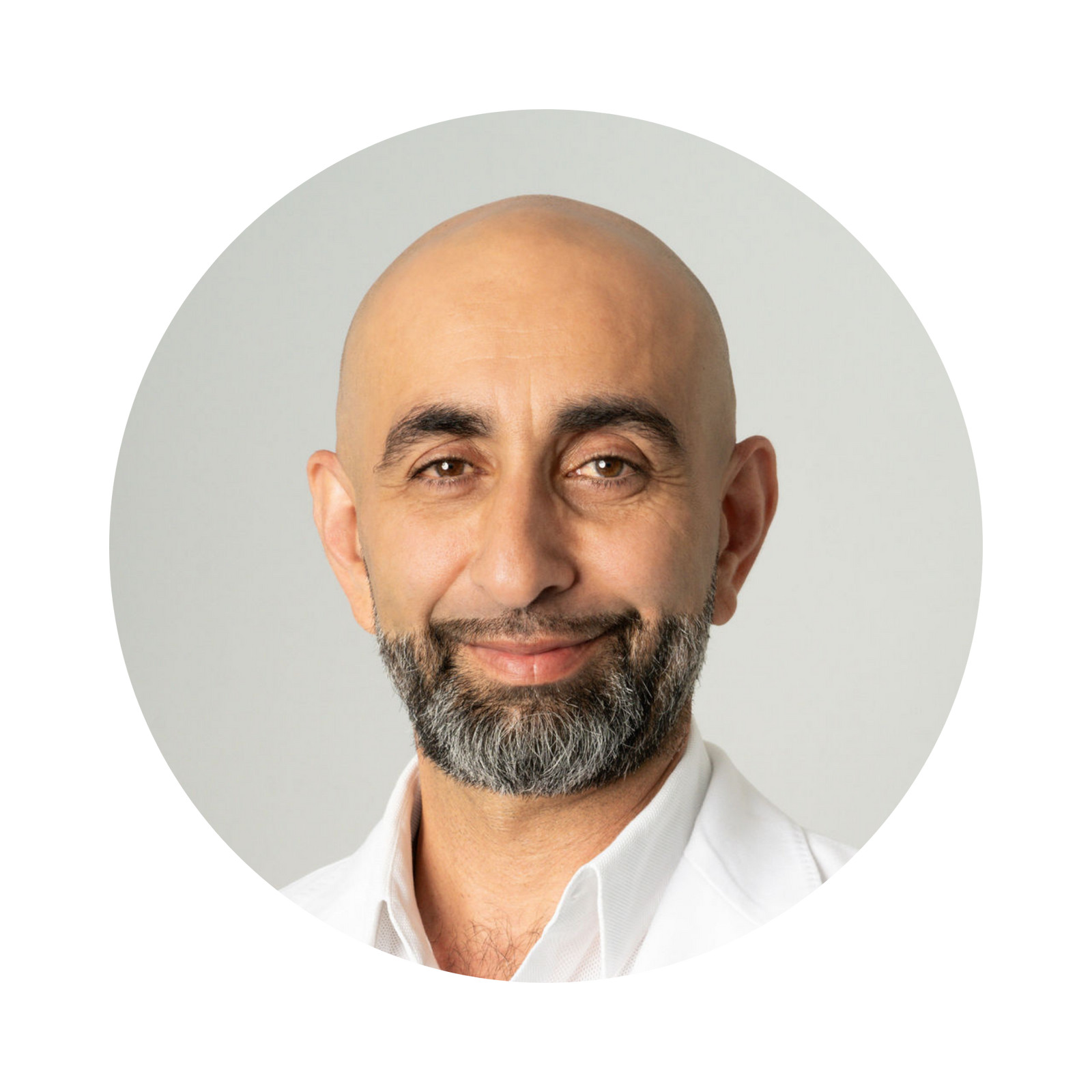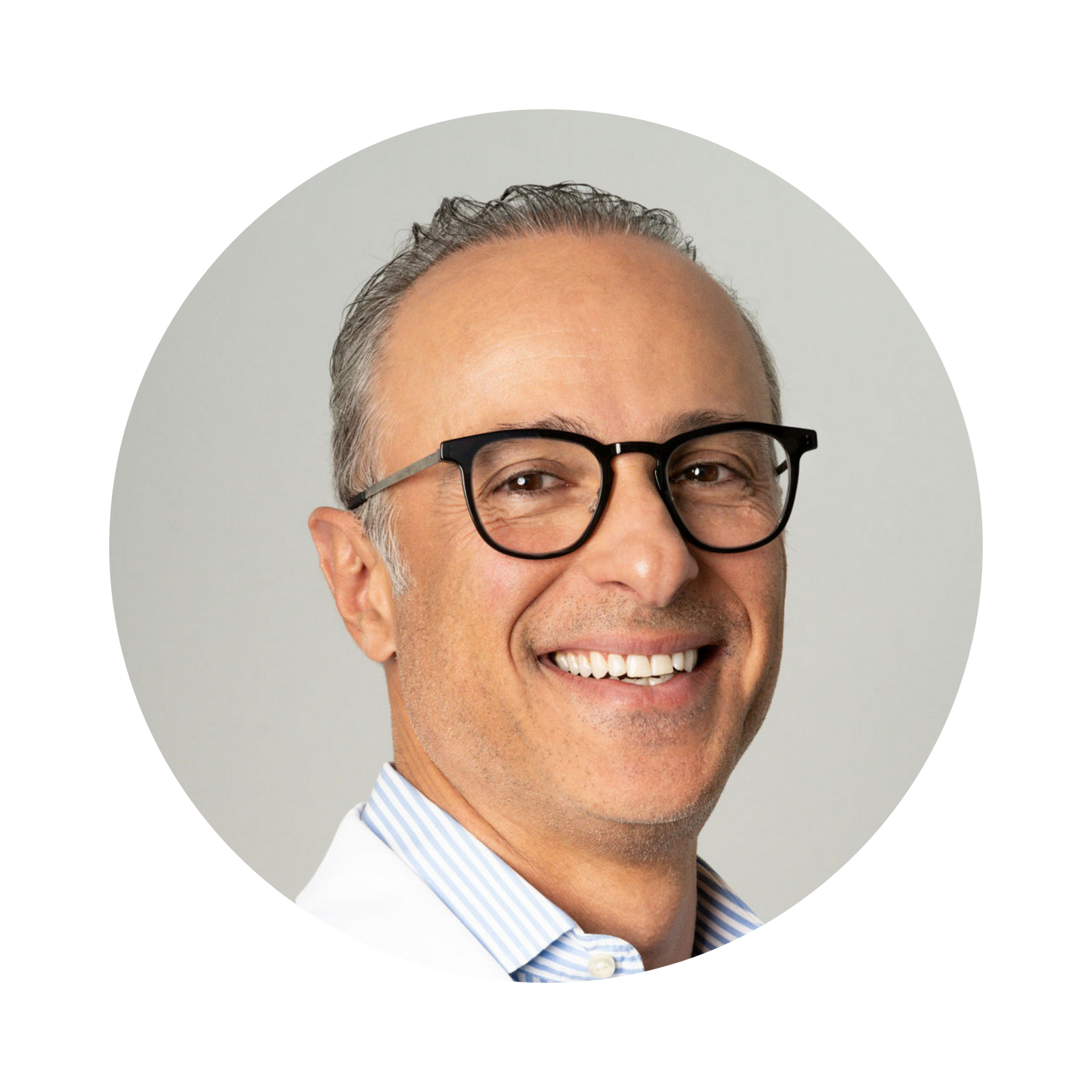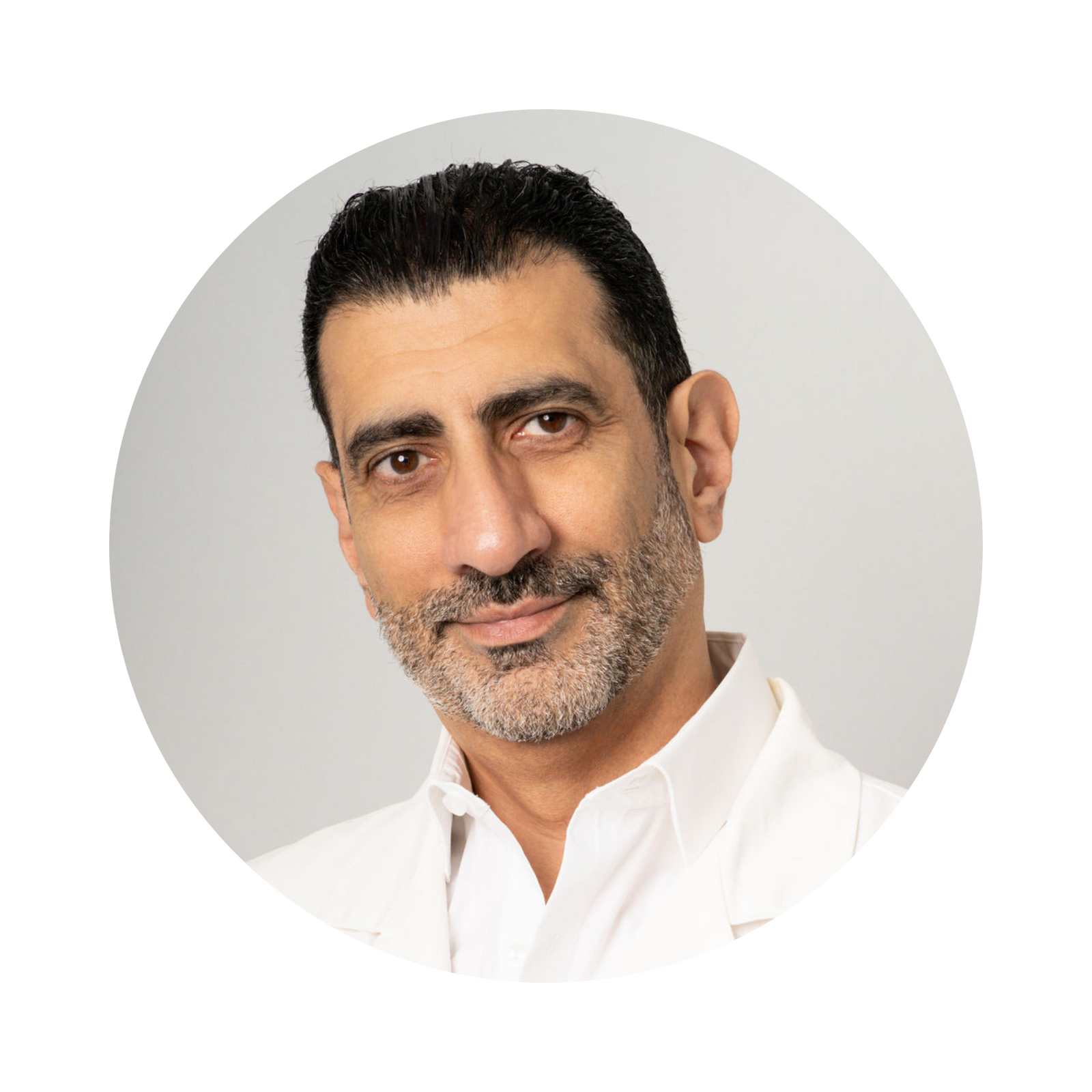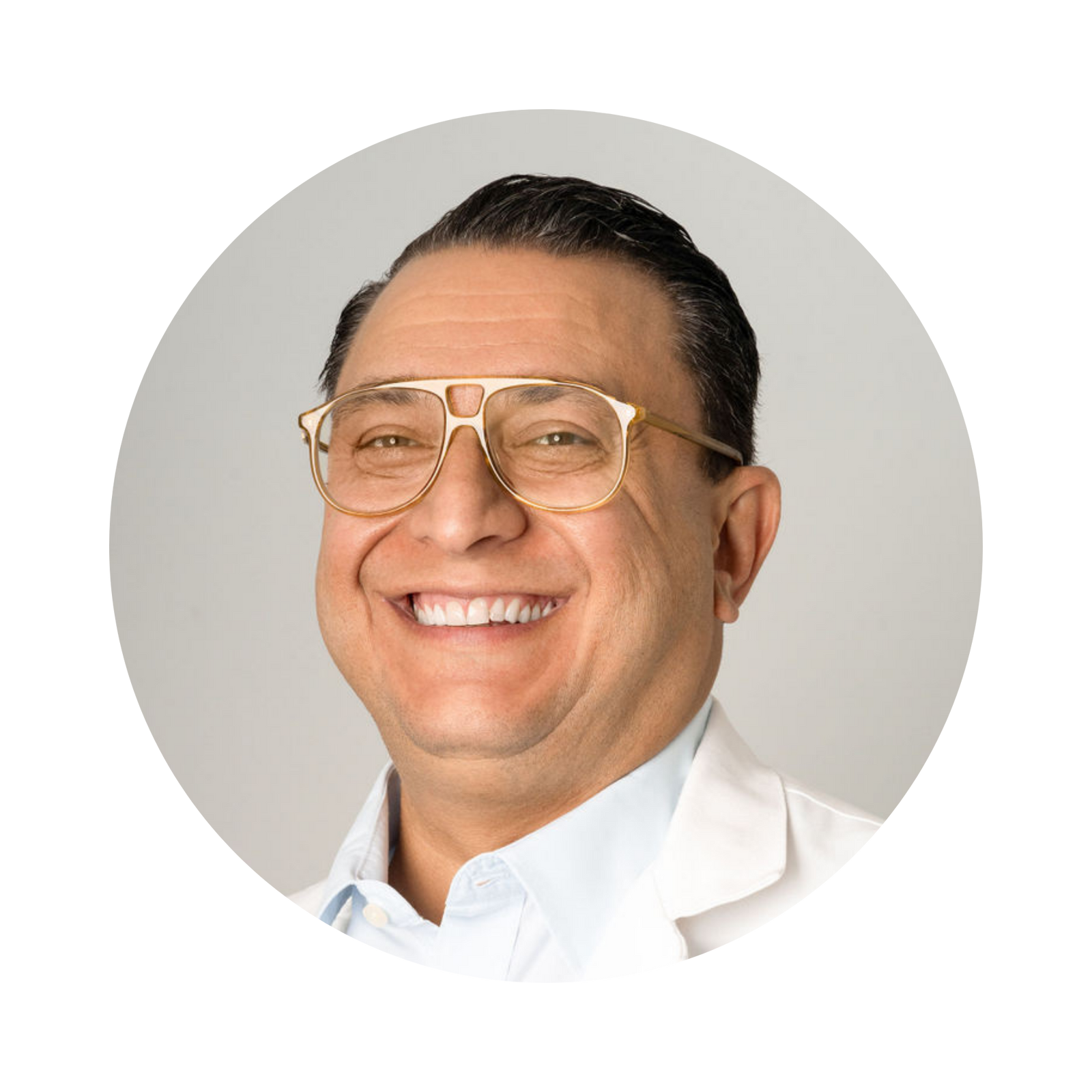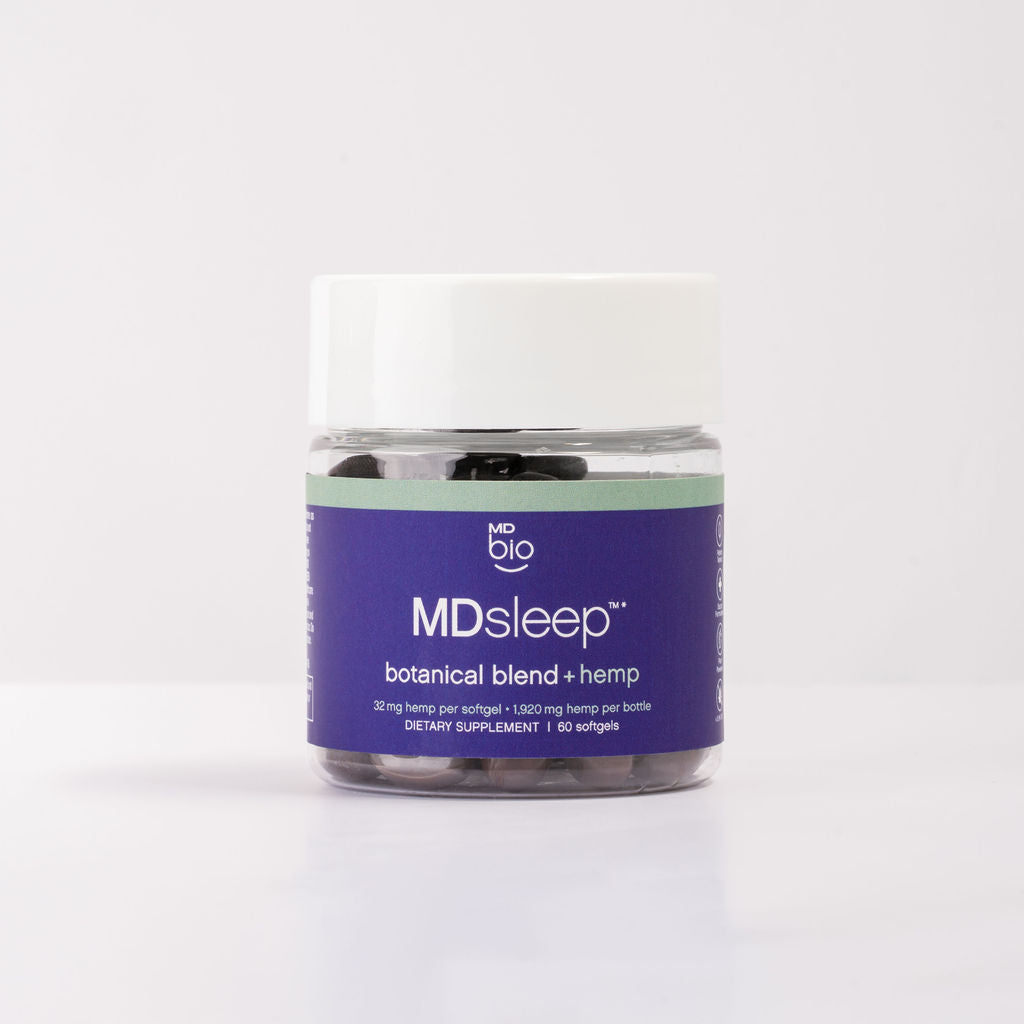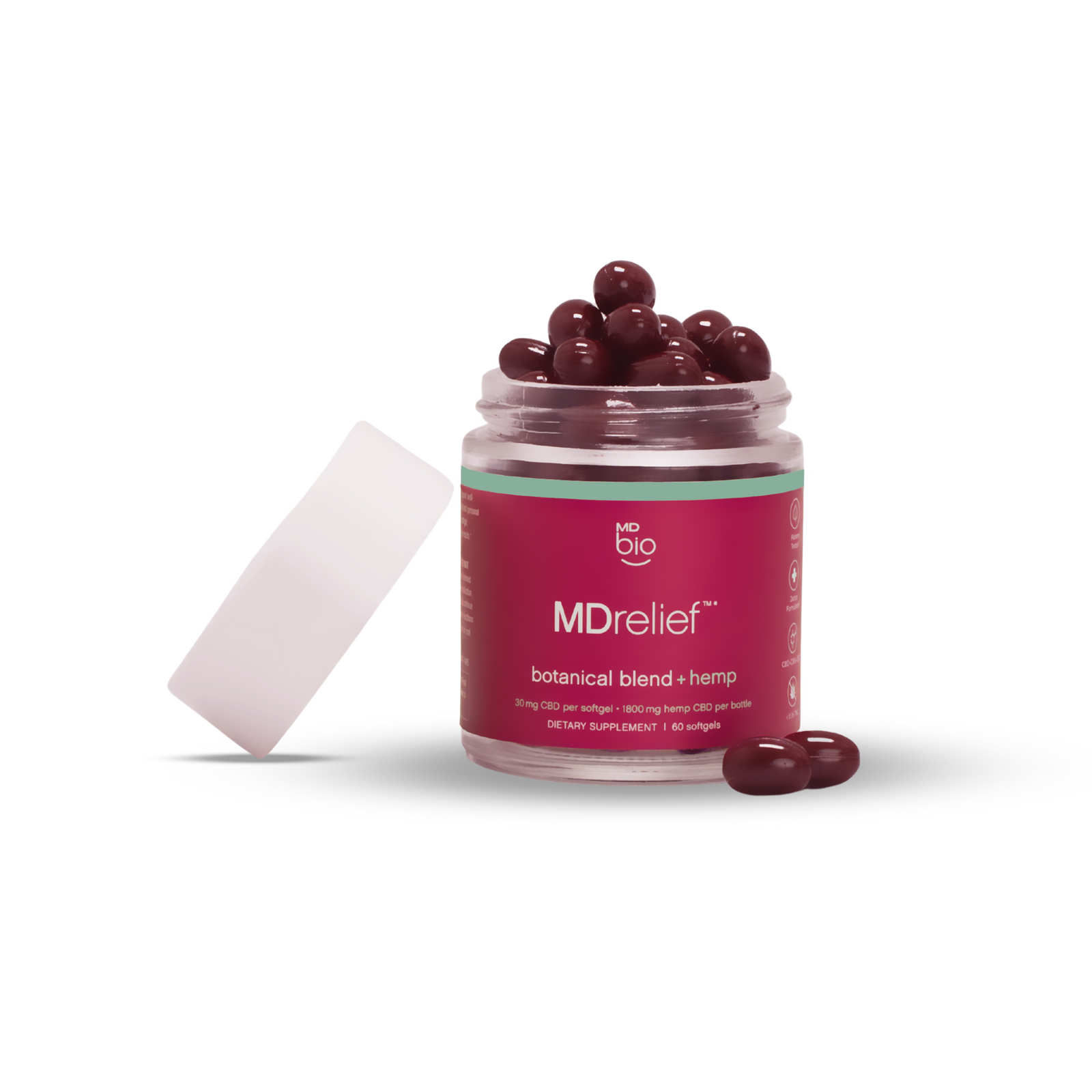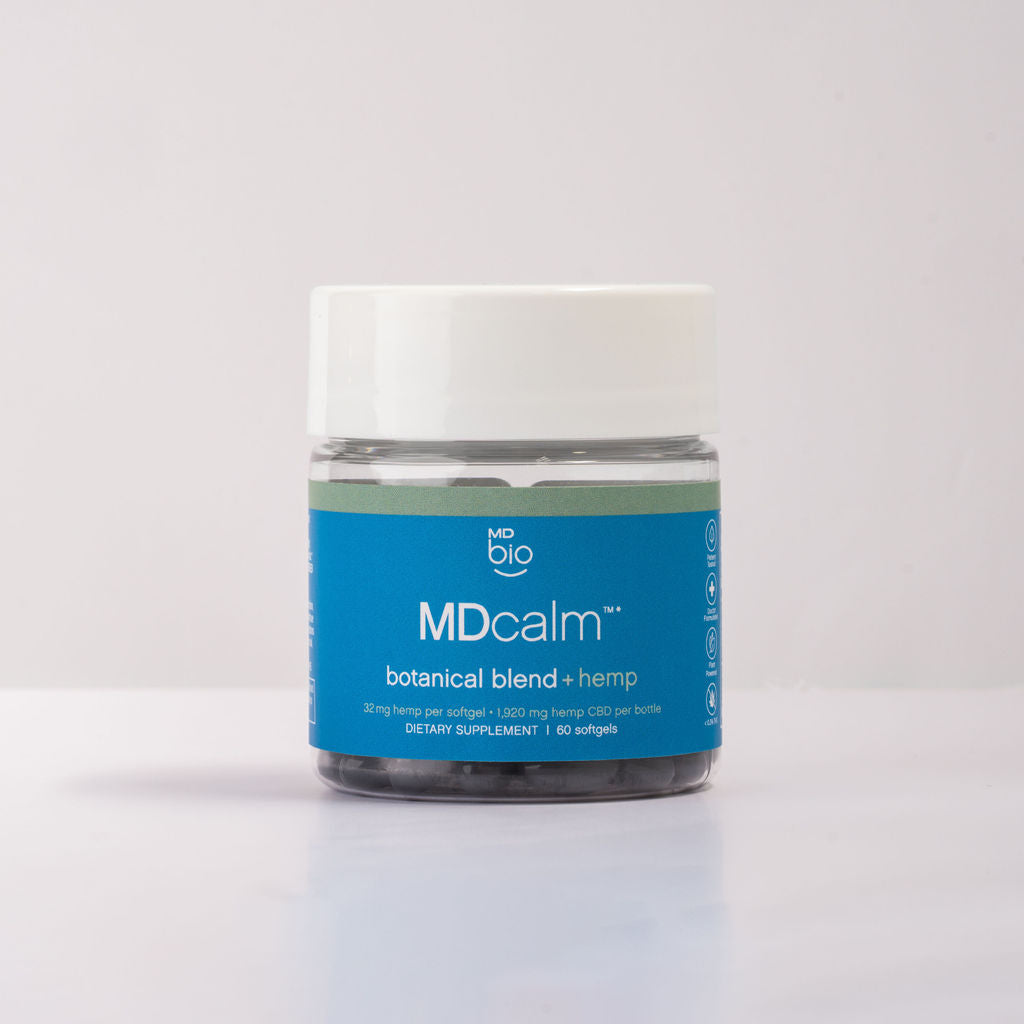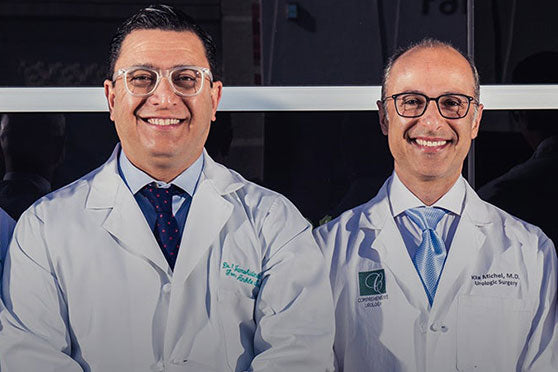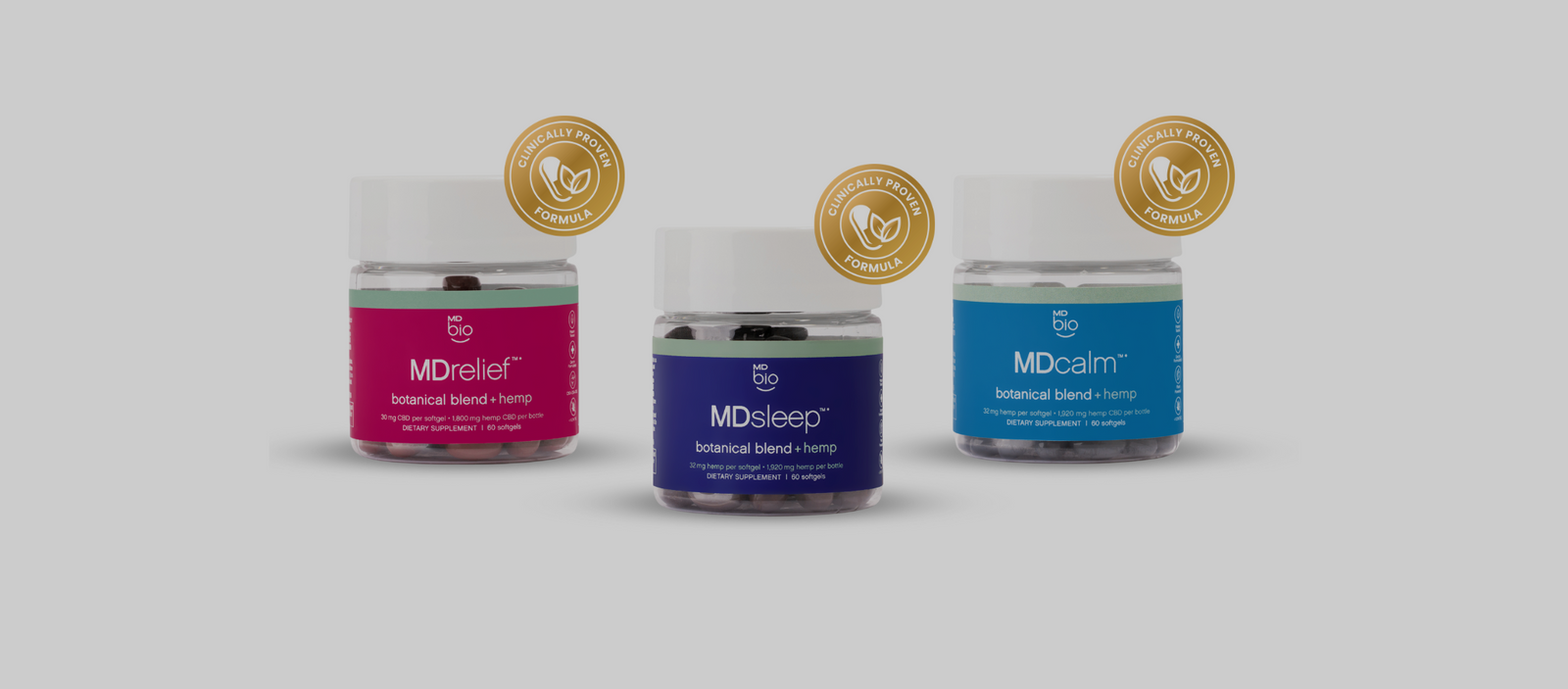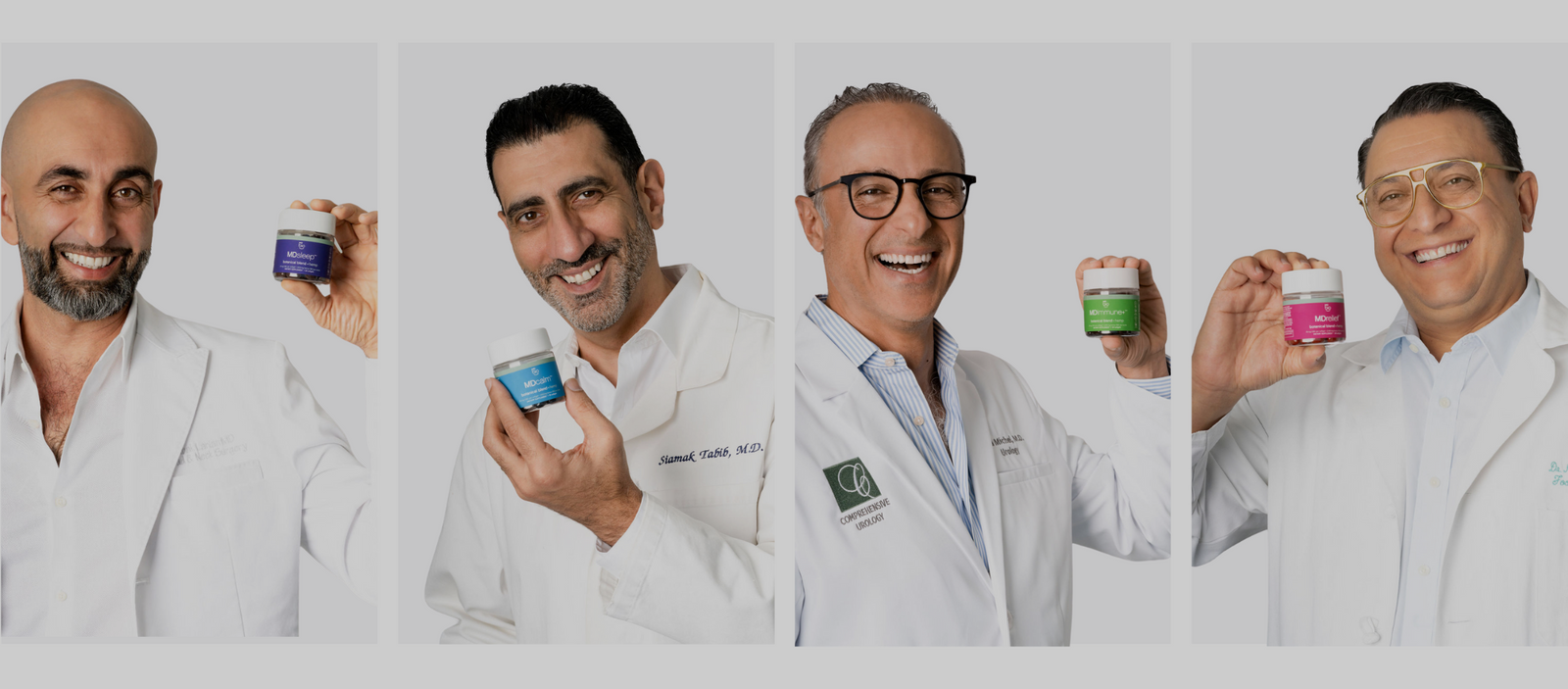
If the phrase “artificial intelligence in healthcare” scares you a little, you're not alone. And it's true that AI will bring about some major changes in how doctors spend their time and how patients receive care.
But AI in healthcare also presents some major opportunities, including for bridging the gap between modern medicine and more traditional schools of thought. Let's take a closer look at what AI health really means and what MDbio's founder, Dr. Babak Larian, has to say.
The Role of AI in Healthcare
There's a lot of misunderstanding over what artificial intelligence in healthcare really means. It doesn't help that a lot of general audience information about AI out there is focused more on speculating about the future than explaining what exactly the technology does.
Taking a closer look at how AI health is functioning today shows that there are several different kinds of AI doing many different things.
AI-Assisted Diagnoses
One area where AI health can work in conjunction with doctors is diagnosis. Right now, AI-assisted diagnosis is incorporated into many scanning machines like CT and MRI scans. This technology helps to produce a clearer and crisper image that's easier to read.
This technology also reduces the need for repeated scans due to human error. That means the patients receive less radiation overall. These AI machines can also flag areas of concern that the clinician can take a look at later.
Improved Analysis
At first glance, that seems impressive, but maybe not such a big deal in the real world. After all, how hard is it to spot a big tumor or a fractured bone?
But while those things are easy to spot, CT and MRI scans are also used to spot organ damage, blood clots, and joint issues. Those scans are used to help diagnose notoriously tricky conditions like Crohn's Disease or lupus.
Dr. Larian points out that AI is already capable of accurately reading hundreds of scans in the time it takes a clinician to read just one. Having a second set of eyes, so to speak, on a patient's scan can mean catching something that might have been missed without the AI.
AI is already helping to spot kidney conditions in some patients by analyzing massive amounts of lab data in addition to taking a look at scans.
Autoimmune conditions are regularly misdiagnosed or missed by clinicians. While AI in healthcare is far from the only fix needed, it may help in getting the imaging needed to catch these diseases.
Deep Learning
But what actually allows AI health to clean up scans and aid in diagnosis?Machine learning refers to computer systems that can learn and adapt independent of human intervention.
One example of machine learning is visible right when you open your favorite streaming video app. Over time, the streaming algorithm learns what you like, whether it's true crime or K-dramas. And it does that without the input of a programmer or any other human.
Deep learning is a kind of machine learning that intentionally mimics the way the human brain is structured. Different algorithms and systems are layered to form aneural network like the one in your brain. Ultimately, these machines learn through experience, much as your brain does.
Deep learning is what allows AI health to aid in diagnosis. Neural networks are capable of learning from massive data sets that normal machine learning could never handle. By reviewing tens of thousands of CT scans, a neural network can learn what's a shadow and what's a blood clot with a high degree of accuracy.
Robot-Assisted Surgery
When most people think of AI in healthcare, they think of a surgical robot slicing and dicing without a lot of human input. Understandably, it's very concerning to imagine a robot performing a delicate procedure on a loved one.
Real robotic surgery, though, is far different than it looks in medical dramas. Much robotic surgery is actually robot-assisted. The robot itself contains a tiny camera and tools attached to a robotic arm that a doctor can control via a keypad.
This allows doctors to work in much tighter spaces in the body than they otherwise could. It also helps in situations like reconstructive surgery where attaching the right nerve ending or capillary is vital.
In the future, artificial intelligence in healthcare could help by reminding doctors to complete certain steps in a procedure or helping doctors decide what to do next if surgery doesn't go as expected.
Robot-assisted surgery has the potential to make specialized surgeries more accessible by cutting wait lists and lowering costs. It may even be possible in the future for a surgeon to supervise a procedure from miles away – a potential revolution when it comes to health care in rural areas.
Virtual Chatbots
Arguably the trendiest AI out there these days, chatbots are good for more than a laugh. AI chatbots are already serving a powerful role in apps designed for self-care.
Mental health apps often have a virtual assistant that can help the user work through some of their thoughts. Some fitness apps have them, too, to help users build a plan that works for them. While a chatbot will never be a replacement for a therapist or a nutritionist, they do have a use.
In the future, you may talk to a chatbot about your symptoms before making an appointment with your doctor. The chatbot can flag any troubling symptoms that mean you need to be seen immediately, and it can also provide more information to your doctor.
Natural Language Processing
Chatbots do what they do thanks tonatural language processing. In short, NLP is about helping a computer to understand the messy, convoluted, nuanced thing that is human speech.
In medicine, this means interpreting a patient's description of symptoms and translating it into more precise language.
NLP often involves using machine learning (or deep learning) on large datasets to help train it to understand grammar rules and the generally accepted meanings of words. This means that unstructured notes by clinicians, patients' self-assessments and care diaries, and even transcripts of conversations can all be used to train the AI.
Administrative Tasks
Billing, scheduling, and ensuring legal compliance are among the least glamorous parts of the medical sector, but they take up a lot of time and resources.
One statistic says the average US nurse spends 25% of their time on administrative tasks. That's 10 or more hours a week that a nurse isn't spending with patients.
AI automation can perform tasks like sending out bills and calling patients with surgery times. NLP can correct any errors in medical bills. And deep learning can scan files for red flags that may point to financial or legal irregularities, making audits easier.
Artificial intelligence in healthcare can help free up nurses, doctors, and others to spend less time on paperwork and legal compliance and more with patients.
Artificial Intelligence in Healthcare – The Doctor's Role
As the use of AI in the medical industry grows, the expectations of doctors are changing. New doctors are already expected to have better “soft skills” than their counterparts 30 years ago, and AI health will only increase this trend.
Instead of taking away medical jobs, AI health can support doctors and allow them to focus on the human connection. As Dr. Larian says, “AI's going to play a major role. But it's not going to replace care.”
Doctor as Science Educator
Patient education has always been part of a doctor's job. Patients want to understand what's wrong with them and how a treatment can make them better.
AI in healthcare can offer doctors the chance to do more patient education in consultations if they want to. With AI assisting in diagnosis and helping with administrative tasks, there's more time to interact with patients.
As AI in healthcare becomes more prominent, patients will also want a different kind of reassurance from doctors, too. Think about an AI-assisted diagnosis – a doctor may understand how the AI diagnoses a certain condition, but to the patient, the whole thing is a black box.
One study found that about 75% of patients are dissatisfied and confused when they leave the doctor. Many report that they don't have enough time to ask the doctor questions. And others feel embarrassed or intimidated when they ask a question.
Though patient education has come a long way from the 1960s and 1970s, it's clear that it hasn't been enough. Doctors will need to become better at explaining both the medical science and the AI technology they're using.
Medical professionals who rise to this challenge will have more satisfied patients that feel empowered to participate in their care.
Doctor as Caretaker
Dr. Larian stresses that tomorrow's doctors will be even more focused on personal patient care than today's.
“Caring, explaining, holding you, carrying you through… I think that's the future of what a doctor [will be] doing.” A machine simply can't replace that, he says.
Medical professionals have always been concerned with taking care of people. The phrase “bedside manner” has been in the English language since at least the 17th century, after all. Every doctor would like to think they're great at this part of the job.
But patients know that the personal care they receive from doctors can vary widely. Some doctors are good at developing rapport and expressing compassion, while others can seem distant, judgmental, and unfeeling. Women, people of color, and those with disabilities are far more likely to have an unpleasant doctor's experience.
Poor care has a cost both in dollars and human lives. Patients will delay or forego treatment if their experience is bad enough, leading to more time off work, expensive emergency health bills, and worse health outcomes.
One individual doctor can't undo centuries of medical racism or sexism, but they can work to provide better and more compassionate care for all of their patients. AI in healthcare can allow doctors to spend more time with patients and work on improving their soft skills.
And as AI becomes standard in the medical field, we can expect to see hospitals and clinics fostering more compassion and better care from the next generation of doctors.
Doctor as Coordinator
Doctors, particularly in hospital environments, already work a little bit like project managers. They issue orders to gather information through tests and scans and then synthesize that information into a diagnosis and treatment plan.
If a patient is getting treatment for a serious disease like cancer, they may have a team of doctors that meet periodically to determine the best course of treatment.
But while this part of the job has always been there, artificial intelligence in healthcare will make it more important. That's because AI will almost be like another doctor in the room. Doctors will need to know how to utilize the information and opinions provided to improve patient care.
The Future of Supplements and Plant Medicine
Oddly enough, while AI in healthcare represents a technological step change, it's also bringing back some older traditions. AI can provide doctors with the space to practice more preventative medicine, including having patients take supplements to minimize health problems down the line.
And with AI health making drug testing easier and cheaper, we may discover new compounds in plants used for herbal medicine. Scientists are also more aware that plants can contain dozens of compounds that contribute to a particular health outcome.
Dr. Larian stresses that plant medicine is far from archaic, even in the age of AI health. “We evolved to co-exist with nature,” he says. That evolutionary history can't be changed by any technological development.
Testing Compounds
AI can analyze databases of known plant proteins for ones that might target a particular human one. This has the potential to not only discover new drugs from currently known plants but it can also scientifically “prove” the effectiveness of various herbal medicine treatments.
Right now, medical studies are largely driven by money. Developing a new drug means you can patent the compound and make millions if not billions. Proving the effectiveness of a widely-available plant compound is a lot less lucrative.
Artificial intelligence in healthcare, making the research and testing process cheaper, may increase the incentive to study readily available compounds. This has the potential to bridge the gap between traditional medicine and the medicalized doctor's office.
Finding Combinations
Western medicine, for all its sophistication, can be a little clumsy when it comes to prescribing drugs. Patients will typically get a drug designed to act on one or two proteins in a very specific way.
Let's say that a drug works great but gives the patient side effects. The doctor may then prescribe a second medication that works on a completely different system to treat the side effects.
This model of medication is a bit like a whack-a-mole game. Problems are treated individually and as they come up. Doctors do understand that most disease doesn't work like this, but this is the way the system works.
Let's contrast this with traditional medicine, which may prescribe a plant that has dozens, or even hundreds, of relevant compounds. Cocaine is an incredibly addictive drug with limited medical uses. But coca leaves contain dozens of other active compounds, as well as protein, fiber, and B vitamins, in addition to cocaine.
Coca leaves are regularly used by indigenous communities to alleviate pain, stem bleeding, and soothe altitude sickness. And when consumed as a whole product by chewing or in tea, coca leaves aren't addictive or dangerous.
By making drug testing cheaper and easier, artificial intelligence in healthcare may show Western medicine what traditional medicine has always known – that consuming the whole plant is different, and often better, than just using one chemical.
Supportive Care
Benjamin Franklin said, “An ounce of prevention is worth a pound of cure,” and it's certainly true in medicine. Small changes like eating more fruits and vegetables, getting regular exercise, and developing good sleeping habits can yield huge dividends down the line.
Supplements are another thing that can make a real difference in a patient's life. But it's a messy business. Manufacturers don't have to prove that supplements are effective or even that they contain the advertised ingredient!
AI in healthcare should help with finding more effective supplements – it can make it cheaper and easier for scientists to study different compounds. It can also crunch large amounts of data in studies to help show the long-term effectiveness of certain ingredients.
AI health will lead to a lot of changes in medicine, but there's also the opportunity to bridge a centuries-old divide between traditional medicine and modern Western medicine.
MDbio Wellness: Traditional Ingredients for a Modern World
Taking the best from both the old and the new is what we do at MDbio. We see artificial intelligence in healthcare as an opportunity to bring together the old and the new.
Take a look at our line of supplements to see how we're already blending Western medicine and traditional wisdom into supplements that support a modern lifestyle.
